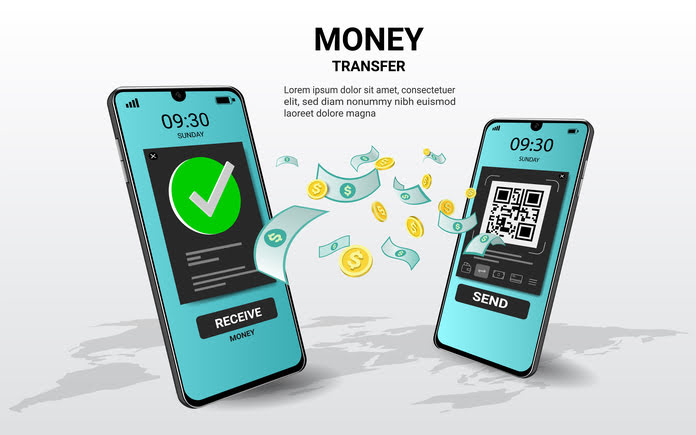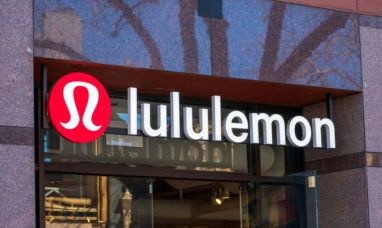The financial technology sector, particularly in electronic payments, has been at the forefront of the global transition towards a cashless society. In this arena, two prominent players have emerged, each with its unique approach to revolutionizing online and mobile transactions. Block (NYSE:SQ), formerly known as Square, and PayPal Holdings (NASDAQ:PYPL) are two major fintech companies that have been making waves in the industry. Despite recent challenges stemming from macroeconomic factors, both companies are poised to turn things around. Let’s delve into their recent performance, growth prospects, and strategies to determine which fintech stock might be the better investment choice.
Block’s Strategic Growth Efforts
Block, under the leadership of CEO Jack Dorsey, has become a significant player in the fintech sector. Block operates in two primary segments: Cash App and Square, both of which reported impressive growth in the most recent third quarter.
Cash App, a peer-to-peer payment platform, recorded a gross profit of $984 million in Q3, marking a 27% year-over-year increase. Square, a point-of-sale system catering to small and medium-sized businesses, saw a 15% rise in gross profit to $899 million. Cash App generated $3.58 billion in revenue, with Bitcoin revenue accounting for $2.42 billion, representing a 37% year-over-year increase.
Block’s management attributes this growth to the rising market price of Bitcoin and increased Bitcoin sales to customers. The company is committed to further enhancing the Cash App and Square platforms.
In addition to its core services, Block has expanded its offerings to include business loans and banking services, positioning itself to capitalize on the growing demand for cryptocurrency and the emerging trends in decentralized finance.
Looking forward, Block’s management anticipates gross profit in the range of $1.96-1.98 billion for Q4 and adjusted EBITDA between $430-450 million. The company also aims to achieve mid-teens gross profit growth and mid-twenties adjusted operating income margin by 2026, following its “Rule of 40” path.
Analysts are optimistic about Block’s future, with an 87% increase in earnings per share (EPS) to $1.88 on $21.7 billion in revenue expected for 2023. In 2024, revenue and earnings could rise by 12% and 50%, respectively. With a forward price-to-earnings (P/E) ratio of 17, Block’s valuation seems reasonable based on its projected 2024 earnings growth.
PayPal: International Reach and Operating Discipline
PayPal has established itself as a global leader in digital payments, offering a secure and user-friendly platform for online purchases, person-to-person transfers, and business transactions across 200 countries and supporting 25 currencies. The acquisition of Venmo, a peer-to-peer payment app, has expanded PayPal’s user base and diversified its services. The company has also ventured into the world of cryptocurrencies.
Despite facing challenges, including the departure of eBay and increased competition in the e-payments space, PayPal showed resilience in its most recent third quarter, with an 8% year-over-year increase in revenue to $7.4 billion. Although growth rates have slowed compared to previous quarters, analysts believe that easing macroeconomic pressures could reignite revenue growth.
The appointment of a new CEO, Alex Chriss, led to some uncertainty among investors. However, the CEO has reassured that the company’s focus is on generating real profits. In Q3, PayPal achieved an adjusted EPS of $1.30, a 20% increase from the previous year.
The company anticipates EPS growth of about 21% to $4.98 for the full year, aligning with analysts’ expectations. With a forward P/E ratio of 10, PayPal’s stock appears fairly valued, considering the expected 13% earnings growth to $5.61 per share in 2024.
Analysts’ Views and Potential Upside
Wall Street sentiment leans toward a “moderate-buy” for Block, with 22 “strong buy” recommendations, 2 “moderate buy” suggestions, and 10 “hold” ratings out of 34 analysts covering the stock. The average price target of $77.80 suggests a potential upside of approximately 61% over the next year.
For PayPal, out of 33 analysts covering the stock, 17 have a “strong buy” recommendation, one suggests a “moderate buy,” and 15 label it as a “hold.” No “sell” recommendations are reported. The average price target of $82.53 indicates a potential upside of about 50% over the next 12 months.
The Battle of E-Payment Titans: Who Will Prevail?
In the evolving e-payments landscape, the rivalry between Block and PayPal continues. Both companies are positioned for growth when macroeconomic conditions improve, but analysts favor Block due to its exposure to Bitcoin and strategic efforts to boost profitability. Wall Street also sees greater potential upside for Block, aligning with an optimistic assessment of the company. Consequently, the current sentiment is bullish on Block and neutral on PayPal.
Featured Image: Freepik















